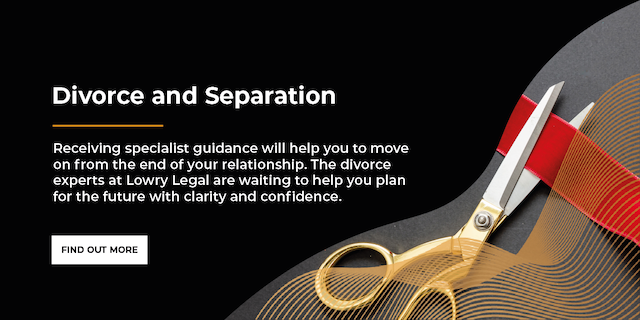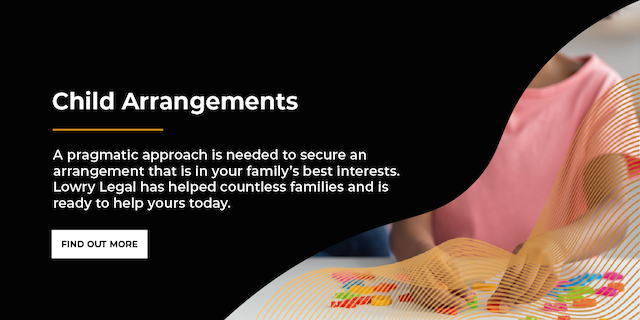
Available to both same-sex and opposite-sex couples, civil partnerships offer the same legal rights as married couples. This means that the ending of a civil partnership can be just as difficult and stressful to navigate as a regular divorce or separation.
Finding your way through the process requires support from a sympathetic yet proactive legal firm who can offer essential guidance whenever needed. But how do you legally end a civil partnership, and what are the essential steps you need to take?
Grounds for Ending a Civil Partnership
Following the Divorce Dissolution and Separation Act (DDSA) 2020, there is just one basis for ending a civil partnership: that the partnership itself has irretrievably broken down. No further evidence will be required. You must also have been in a civil partnership for at least one year.
Before this change, those looking to dissolve a civil partnership had to satisfy one of four facts:
- Unreasonable behaviour
- Desertion
- Both parties had been separated for at least two years and consented to the dissolution
- Both parties had lived apart for at least five years
Now, you will simply need to provide a statement that your civil partnership has irretrievably broken down, thereby simplifying the entire process.
Disputing Civil Partnership Dissolution
Your ex-partner can only dispute the civil partnership dissolution application on three grounds: the partnership wasn’t valid, the court doesn’t have the jurisdiction to facilitate the dissolution, or the partnership had already been legally dissolved. They are not able to dispute that the partnership has irretrievably broken down.
This change came into effect as part of the DDSA 2020. Previously, the respondent to a civil partnership dissolution application would have had the right to dispute the reason for separation given by the applicant.
Applying for Dissolution of Civil Partnership
The process to legally end a civil partnership begins with an application to the court, which can be done on a single or joint basis. This document contains information on those involved in the civil partnership, alongside a statement that the relationship has irretrievably broken down.
In cases where there is just one applicant, the court will issue the document to the other party (known as the respondent), who will then be given 14 days to confirm receipt and lodge a dispute if required. If you are a single applicant, it’s a good idea to send a copy to your former partner beforehand to try to keep things amicable.
The Civil Partnership Dissolution Process
Once the dissolution application has been acknowledged, the process of ending a civil partnership can begin. There are several steps to this, each with their own rules and timeframes.
Contested vs Uncontested
If the respondent did not wish to contest the dissolution, the application will move onto the next stage. If they do want to contest, they will have a further 21 days to file their grievance in court. Should they fail to do so, the application will progress to the next stage.
Cooling Off Period
Applicants will also be given a cooling off period of 20 weeks to reflect on the situation and confirm they do still wish to proceed. This is the same for both single and joint applications.
Once this has passed, the applicant(s) will need to sign a statement confirming the application’s details. The statement will then be issued to the court.
Conditional Order
If the court is satisfied with the application, it will make a conditional order. This involves sending a certificate of entitlement to a dissolution. Note, the conditional order does not mean the civil partnership has legally been ended.
Final Order
The last stage of ending a civil partnership is the issuing of the final order. This is the document that legally brings the relationship to an end, so must be kept in a safe place.
A final order must be applied for by the applicant just over six weeks after the conditional order was granted. If this is not done, the respondent will be given the opportunity to apply for the final order after a further three months.

How Long Does it Take to End a Civil Partnership?
Typically, legally ending a civil partnership can take between 9-12 months if both parties respond quickly to the process and there are no disagreements. If the respondent disputes the application, or there is friction over matters such as financial arrangements or child arrangements, the process could be significantly longer.
Other potential reasons for a delay in the process could be that one party believes the other is hiding assets, something which is common in cases involving significant wealth. There could also be an international element involved and a dispute over jurisdiction.
This is where the involvement of specialist civil partnership dissolution solicitors is crucial. They will work closely with you to establish your goals and devise a bespoke solution.
Targeted Guidance from Lowry Legal
If you’re unsure about how to legally end a civil partnership, Lowry Legal can help. We’ll take the time to understand your exact requirements and devise a tailor-made strategy to suit your circumstances and deliver on your objectives. We make it our mission to deliver the best possible result for all our clients — whether that’s via alternative dispute resolution or robustly defending your interests in court if an amicable outcome is not possible.
Our holistic service means we take care of everything from the civil partnership dissolution itself, to issues surrounding financial settlements and child arrangements. As specialist high net worth divorce solicitors, we’re completely comfortable with handling cases involving limited companies, complex financial arrangements, and multiple jurisdictions.
We even offer a comprehensive mediation service which can help you decide whether ending the civil partnership is what you really want, or if the relationship can be salvaged. Lowry Legal’s in-house mediator also specialises in helping couples come together and discuss any challenges in an open and constructive setting — minimising the need for a protracted route to the courts. Our team also regularly works alongside third-party experts such as forensic accountants and tax professionals to ensure absolutely everything is taken care of.
To find out more about Lowry Legal and how we can help, contact our team today.










